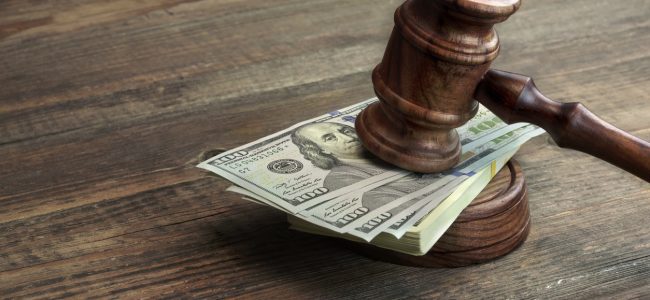BlogLine
The Price of Illinois Litigation Isn’t Going Down: Illinois Appellate Court Rejects Constitutional Challenge to Prejudgment Interest Law
6/12/23

By: Donald Patrick Eckler and Jonathan Schwartz
Starting in Spring 2021, Illinois began to allow 6 percent prejudgment interest to accrue in personal injury and wrongful death cases, albeit subject to exceptions and nuances, which we detailed in Down It Goes! Illinois Prejudgment Interest Struck Down – What To Do Now. Even before it was struck down by a circuit court, Defendants started challenging the constitutionality of the prejudgment interest statute. The Illinois Appellate Court has now offered its interpretation of the statute on June 9, 2023, in Cotton v. Coccaro, 2023 IL App (1st) 220788, and the result is troubling.
After setting forth the purpose for prejudgment interest that is, in its view, in conformity Art I, § 12 of the Illinois Constitution, that provides “[e]very person shall find a certain remedy in the laws for all injuries and wrongs ***. He shall obtain justice by law, freely, completely, and promptly,” the Appellate Court first found that the imposition of prejudgment interest does not impair the “inviolate” right to a trial by jury guaranteed in civil matters in Illinois by Art. I, § 13. The court came to this conclusion because it found that “[p]rejudgment interest, is not a component of tort damages but a statutory additur applicable when legislatively defined conditions are satisfied.” It also characterized the award of prejudgment interest as “a ministerial function for the trial court, no different from awarding costs, imposing postjudgment interest, or setting off the verdict … to account for funds received from settling defendants.”
The Appellate Court further found that the imposition of prejudgment interest neither violates the federal or state constitutional due process guarantees because it does not impinge on a fundamental right and need only satisfy rational basis review. In doing so, the Appellate Court dismissed the pattern jury instructions that allow for or even instruct the jury to adjust its award based on the timing of the plaintiff’s injury. The court also rejected the argument that prejudgment interest allows for a double recovery, as was found by a Cook County judge, based upon a law journal article and a Rand Corporation study, that juries award prejudgment interest as part of their damages calculations.
Additionally, the statute was found not to be special legislation in violation of Art. IV, § 13 of the Illinois Constitution, even though it favored a certain class of cases for prejudgment interest to the exclusion of others.
The Appellate Court also held that Defendants did not have standing to challenge the provision requiring an offer to be made within one year of filing the action in order to reduce or eliminate prejudgment interest because these Defendants were named when the matter was filed. This could be a viable challenge in a future case for dissimilarly situated defendants, but the court, in dicta, hypothesized that “a reasonable trial court could construe the prejudgment interest amendment such that the grace period is one year from the filing of the action as to that defendant.”
The Appellate Court next rejected arguments that 1) the statute violated separation of powers, finding that the recovery of interest is purely statutory in Illinois; 2) the passage of the legislation violated the three readings requirement of Art. 4, § 8(d) of the Illinois Constitution, as the enrolled bill doctrine applied and the Appellate Court had no authority to ignore it; and 3) the retroactive application does not interfere with a vested right.
While this decision is a setback for the challenges to the prejudgment interest statute, it is not the end of the road. It is now incumbent upon the Illinois Supreme Court to correct the ruling by the Appellate Court and properly scrutinize the prejudgment statute and its flaws. Nonetheless, and in the meantime, Illinois defendants and their liability insurers will be confronted with the prospect of ever-increasing verdicts and settlement demands in personal injury and wrongful death cases.
For more information, contact Donald Patrick Eckler at patrick.eckler@fmglaw.com, Jonathan Schwartz at Jonathan.Schwartz@fmglaw.com, or your local FMG attorney.
Share
Save Print